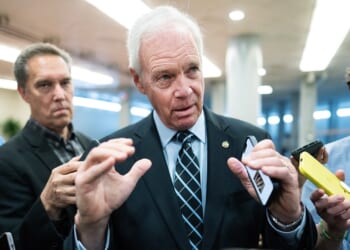The assumptions behind foreign policy realism are more than just power calculations.
Defining “realism” in foreign policy is a question that has occupied the minds and busied the pens of many self-proclaimed “realists” and non-realists alike. Nonetheless, the query and its corollaries are worth asking again and again. What is foreign policy realism? What are some of its key principles? What is the relationship between realism and morality?
These questions are significant because the terms “realism” and “realist” are all too often invoked without reflection in foreign policy discussions. The policies of President Richard Nixon and his secretary of state, Henry Kissinger, with their opening of relations with Communist China and pursuit of détente with the Soviet Union, popularized the term. President Barack Obama was often described as a “realist” during his two terms in office, due to his apparent priority of winding down the US military presence in the Middle East and focusing on Asia, in contrast to the supposedly “ideological” policies of his predecessor, President George W Bush. President Donald Trump has been given the same realist moniker for his “transactional” and non-ideological style of diplomacy, characterized by an emphasis on “deal-making.”
But how are we to make sense of a term that is applied to administrations of various and clashing styles, ideologies, and priorities? Or is the term simply bereft of genuine content?
In this episode of the Three Questions Podcast, Center for the National Interest president Paul Saunders sets the record straight on the principles of foreign policy realism. These should be seen as distinct from the academic “International Relations” tradition of realism. Saunders argues that realism is primarily an approach to, or a disposition toward, foreign policy rather than an ideology with ready-made answers to any specific problem.
Listen now on Apple, Spotify, or wherever you get your podcasts.
About the Speaker: Paul Saunders
Paul J. Saunders is President of the Center for the National Interest and a member of its board of directors. He is also the Publisher of The National Interest. His expertise spans US foreign and security policy, energy security, climate change, US-Russia relations, Russian foreign policy, as well as US relations with Japan and South Korea. Saunders is a Senior Advisor at the Energy Innovation Reform Project (EIRP), where he served as president from 2019 to 2024. He has been a member of EIRP’s board of directors since 2013 and served as chairman from 2014 to 2019. At EIRP, Saunders has focused on the collision between great power competition and the energy transition, including such issues as energy security, energy technology competition, and climate policy in a divided world. In this context, he has engaged deeply in energy and climate issues in the Indo-Pacific region, especially in US relations with Japan and South Korea. His most recent project at EIRP is an assessment of Russia’s evolving role in the global energy system. Saunders served in the Bush administration from 2003 to 2005 as Senior Advisor to the Under Secretary of State for Global Affairs.
Image: Brian Jason / Shutterstock.com.

















